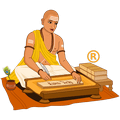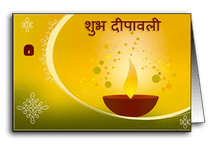












Sunrise05:20
Sunset19:55
Moonrise09:30
Moonset22:46
Shaka Samvat1812 Vikriti
Vikram Samvat1947 Shubhakrit
Gujarati Samvat1946 Plava
Amanta MonthShravana
Purnimanta MonthShravana
WeekdaySomawara
PakshaShukla Paksha
TithiChaturthi upto 05:23
NakshatraPurva Phalguni upto 10:17
KaranaVishti upto 05:23
KaranaBava upto 18:23
Rahu Kalam07:10 to 08:59
Gulikai Kalam14:27 to 16:17
Yamaganda10:49 to 12:38
Abhijit12:09 to 13:07
Dur Muhurtam13:07 to 14:05
Dur Muhurtam16:02 to 17:00
Amrit Kalam28:46+ to 06:32 on Jul 22
Varjyam18:12 to 19:58
Notes: All timings are represented in 24+ hour notation in local time of Columbus, United States with DST adjustment (if applicable).
Hours past midnight are higher than 24:00 and fall on next day. In Panchang day starts and ends with sunrise.


 Dhanu 28:06+
Dhanu 28:06+ P Ashadha 22:48
P Ashadha 22:48

 Makara
Makara U Ashadha 19:59
U Ashadha 19:59

 Kumbha
Kumbha Shatabhisha 12:33
Shatabhisha 12:33

 Kumbha 05:15
Kumbha 05:15 P Bhadrapada 10:54
P Bhadrapada 10:54

 Meena
Meena U Bhadrapada 09:51
U Bhadrapada 09:51

 Meena 09:29
Meena 09:29 Revati 09:29
Revati 09:29

 Mesha
Mesha Ashwini 09:47
Ashwini 09:47

 Mesha 17:05
Mesha 17:05 Bharani 10:45
Bharani 10:45

 Mithuna
Mithuna Ardra 19:33
Ardra 19:33

 Mithuna 15:45
Mithuna 15:45 Punarvasu 22:30
Punarvasu 22:30

 Simha
Simha Magha 07:32
Magha 07:32

 Kanya 27:24+
Kanya 27:24+ Hasta 14:38
Hasta 14:38

 Tula
Tula Chitra 16:00
Chitra 16:00

 Tula 10:42
Tula 10:42 Vishakha 16:37
Vishakha 16:37

 Vrishchika 14:17
Vrishchika 14:17 Jyeshtha 14:17
Jyeshtha 14:17

 Dhanu 14:52
Dhanu 14:52 P Ashadha 09:34
P Ashadha 09:34

 Makara
Makara U Ashadha 06:39
U Ashadha 06:39In Hindu Calendar, the day starts with local sunrise and ends with next day local sunrise. As sunrise time is different for all cities, Hindu Calendar made for one city is not valid for any other city. Hence it is important to use location based Hindu Calendar, like this website. Further, each Hindu day consists of five elements, which are called angas. These five elements are -
In Hindu Calendar, all five elements together are called Panchang. (In Sanskrit: Panchang = Pancha (five) + Ang (part)). Hence Hindu Calendar which shows all five elements for each day is called Panchang. In South India Panchang is known as Panchangam.
When Hindu Calendar includes Muslims, Sikh, Christian, Buddhist and Jain festivals, including national holidays, it is called as Indian Calendar.